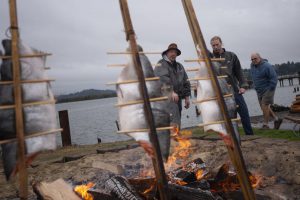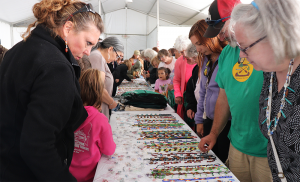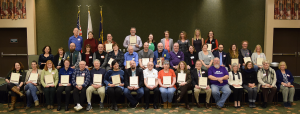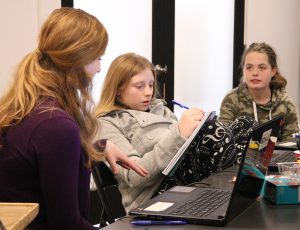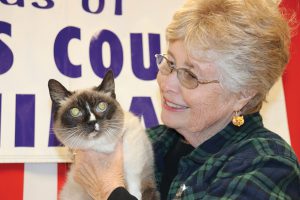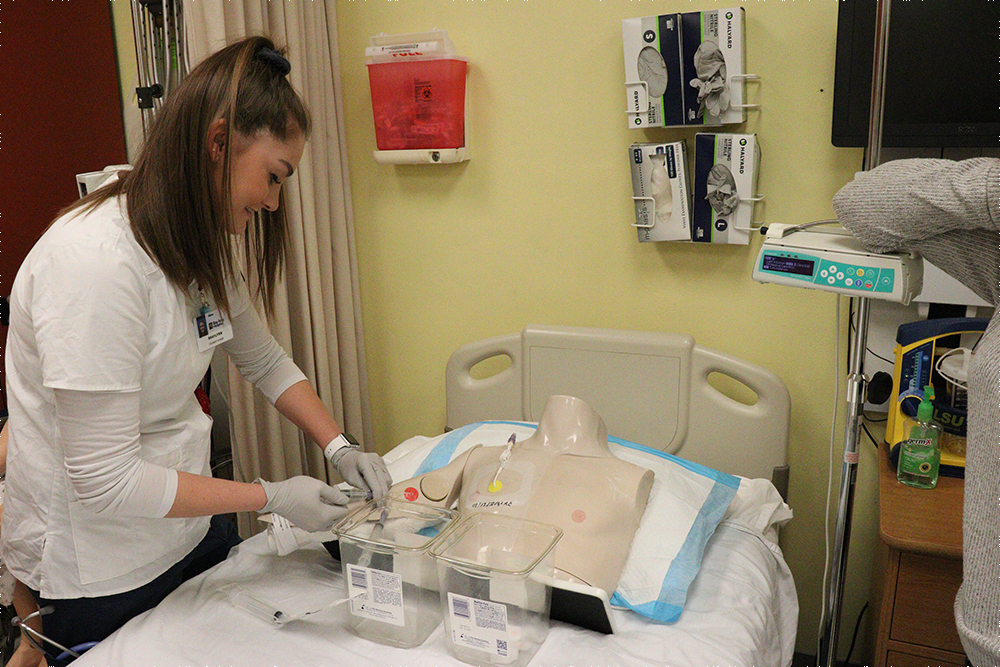
Plastic patients help student nurses learn
Chester has one arm and no head, but he performs a valuable service for student nurses.
“Without tools like this, it would be really hard for us to learn,” said Shaylynn Jensen of Coos Bay, a second-year student at Southwestern Oregon Community College.
One recent morning, Jensen and seven classmates took turns treating the imaginary ailments of plastic patients. Sharing three simulated human torsos known as Chester Chests, they worked in teams to draw imitation blood and administer mock medication.
Opportunities to practice those skills will expand soon, thanks to a grant from the Coquille Tribal Community Fund. The fund granted SWOCC $11,300 to buy 10 new Chester Chests.
The grant is part of $366,126 awarded during the tribe’s 2020 Grant Week. Fueled by revenue from The Mill Casino-Hotel & RV Park, the grants help 71 community agencies in southwestern Oregon. Since 2002, the fund has awarded nearly $6.8 million in community grants.
“We’re glad to be able to help SWOCC educate future nurses,” said tribal fund Administrator Jackie Chambers. “More and more of our local residents are senior citizens – including tribal members. We’re going to need a lot more nurses in the years to come.”
Chester is a “vascular access simulator,” designed as a realistic practice tool. SWOCC has some head-to-toe mannequins for full-scale simulations, but Chester is cheaper, simpler and easier to maintain for routine use.
“He can be very helpful,” said lab instructor Leigh Eswonia.
The new Chesters can’t arrive too soon. The old units are wearing out, forcing Eswonia to “MacGyver” them with temporary fixes.
She replaced one unit’s fluid reservoir with a recycled pop bottle, using adhesive tape to attach the simulated blood vessels. It works, for now.
SWOCC’s nursing program is growing to meet the rising need for health-care professionals. Jensen and 30 other second-year students will graduate this spring. Coming behind them is a first-year class of 50. Altogether, 100 future nurses will be enrolled next fall, as the college prepares to open its new health and science technology building.
Jensen, 20, will be this year’s youngest nursing graduate. Her all-business attitude is typical of the 2020 class – a group that Eswonia calls “very motivated.”
“We’re thankful for donations because some of this equipment is so expensive,” Jensen said. “This is what helps us practice safe patient care so we’re prepared for the clinical setting.”
A few months from now, Jensen and her classmates will be registered nurses, treating live patients in real hospitals. Most will choose jobs close to home, but their skills are also in high demand in bigger cities.
“These guys can go anywhere they want,” Eswonia said.
Wherever they go, they’ll owe their skills (at least partly) to a headless plastic torso.
Help for Education
SWOCC nursing is one of 20 education-related programs receiving grants from the Coquille Tribal Community Fund in 2020. Here’s the whole list:
- Alternatives to Violence, $6,410
- Aviva Health (formerly Umpqua Community Health Center), $5,000
- Bob Belloni Ranch Inc., $7,000
- Boys & Girls Clubs of Emerald Valley, $6,000
- Brookings Harbor Education Foundation Inc., $4,300
- Center for Nonprofit Stewardship, $2,000
- College Dreams, $6,000

